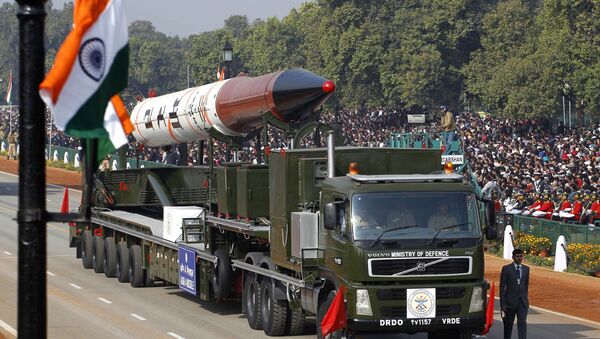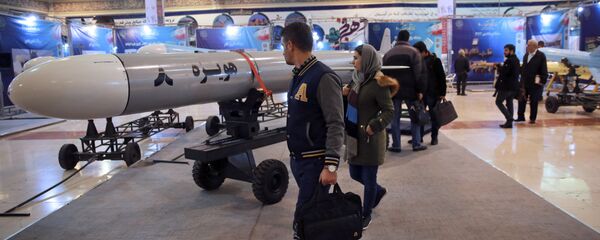New Delhi (Sputnik) — Former Indian Prime Minister Dr Manmohan Singh, while speaking at a book launch function at the Observer Research Foundation, called India a "reluctant" nuclear state, highlighting the fact that the country chose peaceful nuclear technology applications before being forced to weaponise.
— India Today (@IndiaToday) February 24, 2019
— Samir Saran (@samirsaran) February 25, 2019
READ MORE: Lavrov Calls for Security Guarantees for N Korea in Case of Denuclearisation
A book titled "Nuclear Order in the Twenty-First Century", written by former diplomat Rakesh Sood, was released on the occasion.
It (India) is the only country that had an extensive and advanced peaceful nuclear programme before we were compelled to shift in response to security threats and the only one that exercised nearly a quarter century of restraint after having demonstrated its technical capability, former Prime Minister of India Dr Manmohan Singh added.
Dr Singh, in consonance with the book he was launching, batted for the creation of a new nuclear order —one that is more in line with technological advancements and the political scenario. "If we want to ensure that nuclear weapons do not get used, then we need to create a new nuclear order, an order that is more aligned to the new political and technological landscapes", he said.
— NDTV (@ndtv) February 25, 2019
Talking about the changing global dynamics, the former Indian PM said that the modern nuclear age can be described as an age of asymmetry — in terms of doctrines, type and quantity of arsenals and technology. "This is why the most important challenge today is to ensure that the nuclear taboo that has prevented its use since 1945 continues to be preserved", he emphasised.
He spoke on a range of issues bearing on the nuclear world order, stating that nuclear technology is easier to access and acquire, giving rise to new proliferation risks and challenges.
READ MORE: N Korean Media Warns US Will Never be Cleared of Threats if Trump-Kim Talks Fail
Dr Singh also highlighted the risks of unintended nuclear escalations because of the use of Artificial Intelligence and the increase in space and cyber vulnerabilities. Ruing the fading away of the prospects of nuclear disarmament, he lamented, "Many countries are modernising their nuclear arsenals with tactical and low yield weapons, increasing the likelihood of their use. The goal of nuclear disarmament seems to be receding".
The former Indian prime minister's comment comes at a time when neighbours India and Pakistan, both nuclear states, are on the brink of a confrontation-like situation after India blamed Pakistan for sheltering terror elements responsible for the killing of more than 40 Indian paramilitary personal in a suicide bomb attack on 14 February this year.



